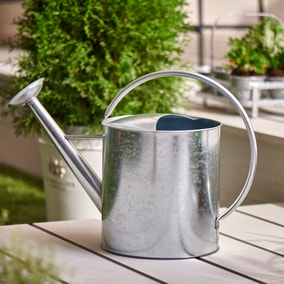Can you overwater plants in the summer? It's easier than you think, warn experts
Keep your plants topped up during the hot weather
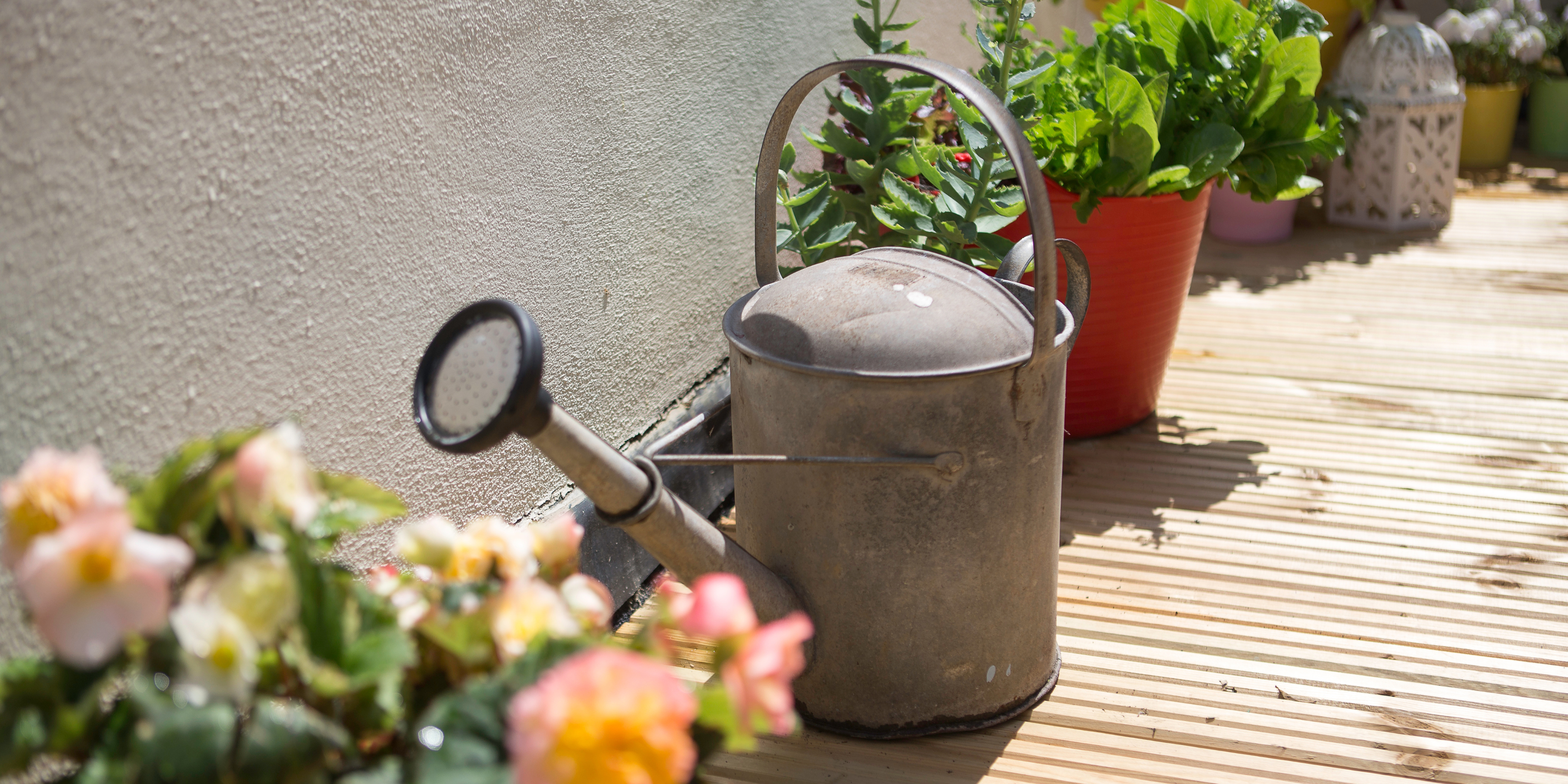

The hot weather has finally arrived, and while we're in the garden enjoying the sun, our instinct is to water our plants more often to keep them looking sprightly. But can you overwater plants in the summer?
Knowing how often to water your garden in hot weather can be a challenge, especially when best practice tells us not to overwater in normal conditions.
'You might think you are doing your plants a favour by watering them again and again when temperatures are high, but it is possible to damage your plants by giving them too much water, says Lucie Bradley, gardening and greenhouse expert at Two Wests & Elliott. 'And you will be wasting water, too!'
To check that we're not making one of many garden watering mistakes, we've asked the experts for their guidance.

Encouraged to garden since she was old enough to walk, Lucie has been working at Two Wests & Elliott since 1997. Originally working alongside the original founders, Mr and Mrs West, until they retired, she has now been fortunate enough to become one of the co-owners. She’s also lucky enough to get to talk to their customers, gardeners both amateur and professional, every day of the week and is always learning as she believes that you can never know everything about gardening as it is always evolving.
Can you overwater plants in the summer?

While it may seem like your plants need as much water as you can afford to give them while the weather is hot, too much can do more harm than good.
'Overwatering is still possible in summer,' says John Clifford, director at Gardenstone. 'While plants do need more water during hot weather, excessive watering can lead to waterlogged soil.'
But what does overwatering mean for our gardens?
'One way in which overwatering your plants can damage them is that you can cause the soil to become so saturated in water that it prevents aeration – which stops your plants accessing the oxygen and nutrients in the soil,' explains Lucie.
'Completely saturated soil – especially in containers or planters – can mean that the plants' roots are sat in stagnant water which will eventually cause the roots to rot.'
Luckily, there are steps you can take to make sure you aren't waterlogging your plants.
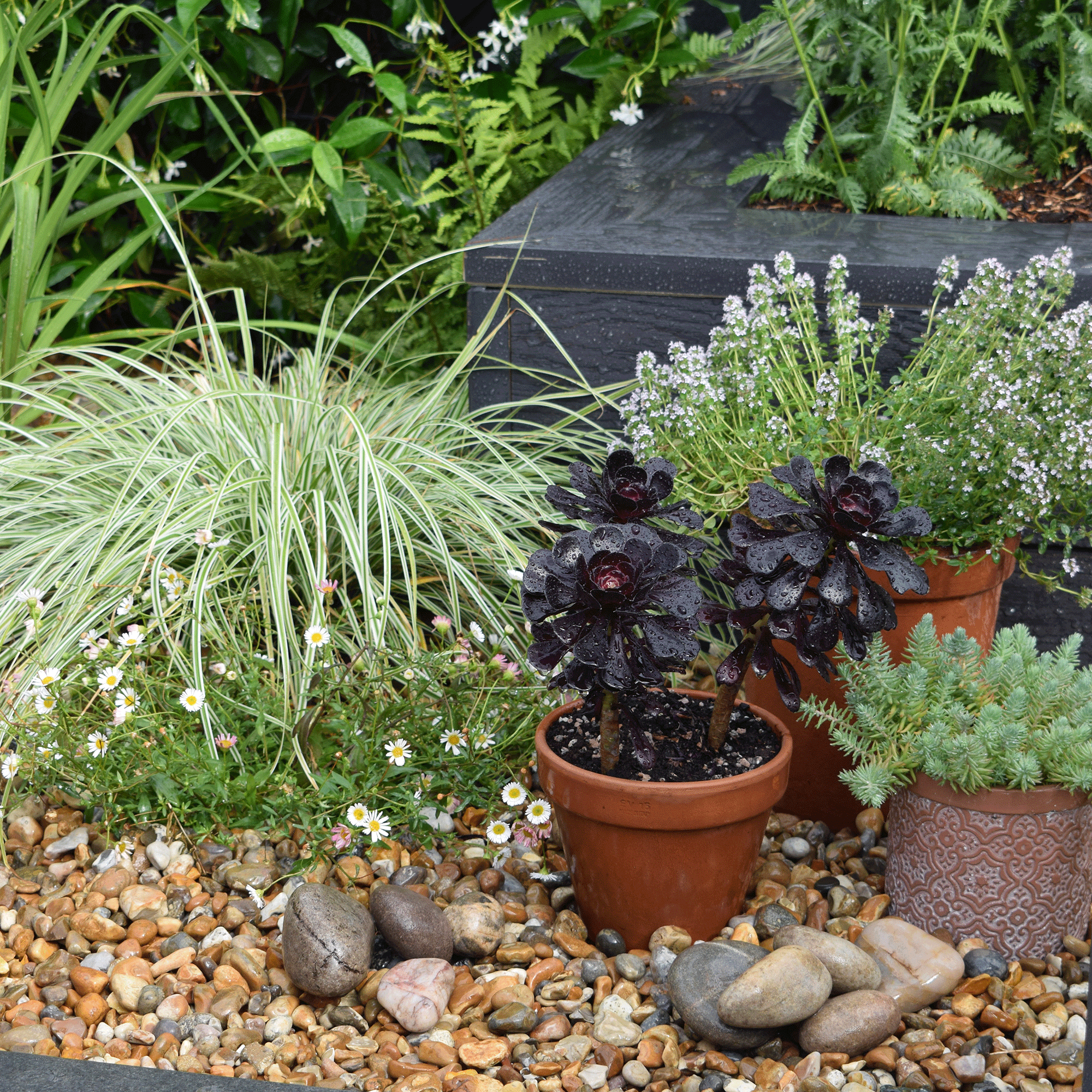

John Clifford is a director of Gardenstone, a leading garden landscaping retailer based in the UK. With over 30 years in the gardening industry and continual work alongside The National Trust, John has amassed an extensive range of gardening and planting knowledge. Alongside his younger son, John has built a strong reputation for Gardenstone as a trusted source for both high-quality garden products and expert gardening advice.
1. Ensure adequate drainage
'Make sure that your plant has effective drainage,' advises John. 'Well-draining soil is often a must for every plant.'
As well as the right soil, it's important that plants in containers can drain effectively. Make sure pots and planters have adequate drainage holes to prevent water from sitting and becoming stagnant. That way, if you do overwater your plants in the summer, the effects shouldn't be long-lasting.
'The aim here is to reduce the water in the soil so your plants can access oxygen and nutrients,' says Lucie.
'If you can move plants in containers into a more shaded area of the garden during extremely hot weather, this should also help.'
What you'll need
2. Check below the surface
Another golden rule is making sure the soil remains consistently moist, not wet.
'To ensure your plants get more water, without overwatering, you need to water them deeply once or twice a week,' says Morris Hankinson, director at Hopes Grove Garden Centres. 'By this, I mean keeping the soil moist as opposed to simply watering the surface of the plants.'
The best way to check if your plants need water is to check the first few inches of the soil – not just the surface, says Lucie. 'But don’t let it get too dry – if it’s dry five to six inches from the surface, it needs watering!'

FAQs
How can I tell if I've overwatered my plants?
'There are a couple of signs of overwatering, and sometimes they do cross over with the signs of underwatering,' says John from Gardenstone. 'Overwatering signs include yellowing leaves, wilting plants even though the soil is wet, lack of growth, and general ill health of the plant.
'Root rot is also a major sign of overwatering, and this can be spotted by a foul odour or mould growing on the surface of the soil and the base of the plant.'
Can overwatered plants recover on their own?
'The only way overwatered plants can recover is if the problem is addressed quickly, and all watering stops,' says John. 'If you think your plants have been overwatered, I recommend letting your plants and soil dry out completely before you try to water it again.
'If your plant is in a pot/container, you'll likely have to remove the plant from its pot, trim any rotten roots, and repot it in fresh, well-draining soil.'
If the warning signs are already there, Lucie recommends removing the yellowed or dead parts of the plant. 'If the plant has been too badly damaged by overwatering, so that their root systems are no longer healthy, then they may not recover.'
So, now you know that you can overwater plants in the summer – and what to watch out for if you do.
Get the Ideal Home Newsletter
Sign up to our newsletter for style and decor inspiration, house makeovers, project advice and more.

Sophie joined the Ideal Home team as Gardens Editor in June 2024. After studying English at Royal Holloway, University of London, she began writing for Grow Your Own, which spurred on her love of gardening. She's tried growing almost every vegetable under the sun, and has a soft spot for roses and dinnerplate dahlias.
As Gardens Editor, Sophie's always on the lookout for the latest garden trend. She loves sharing growing hacks for every space, from herbaceous borders to balconies.
-
 My go-to Ninja coffee machine is on sale for Easter weekend
My go-to Ninja coffee machine is on sale for Easter weekendIt makes coffee shop quality achievable at home
By Molly Cleary
-
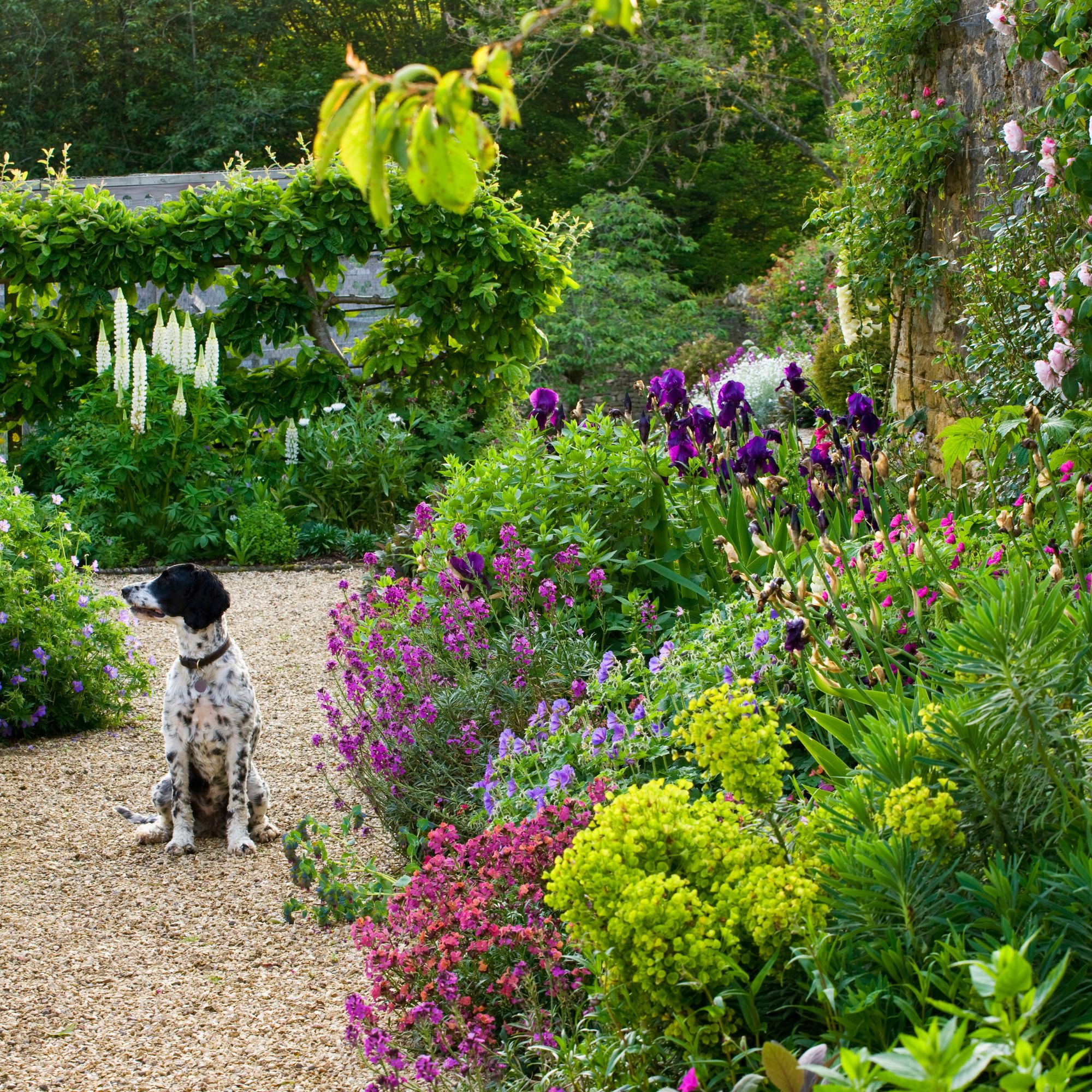 When to plant out annual flowering plants for vibrant, colourful garden borders – and give them the best start, according to experts
When to plant out annual flowering plants for vibrant, colourful garden borders – and give them the best start, according to expertsNot sure when to plant out annual flowering plants? We've got you covered...
By Kayleigh Dray
-
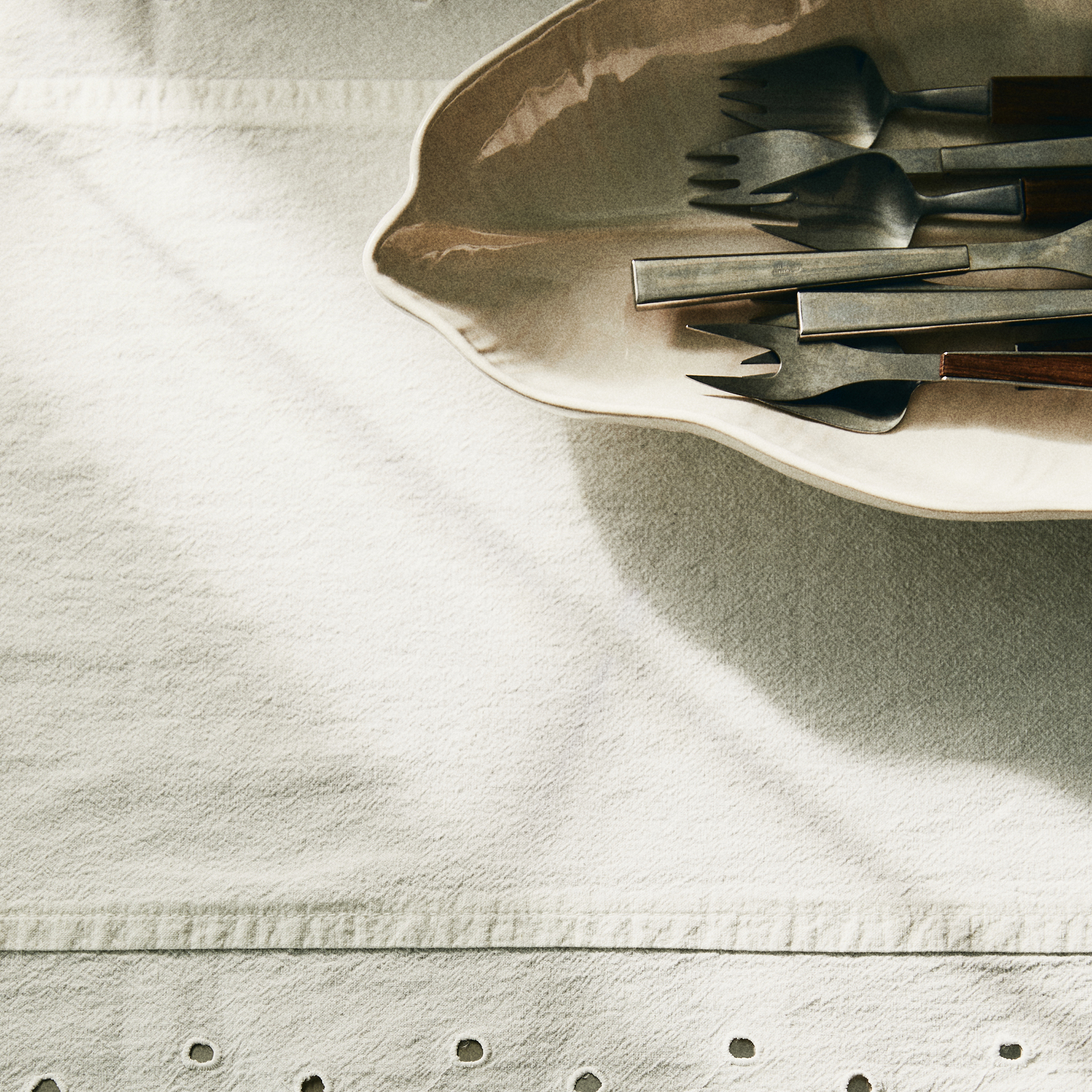 I'm a kitchen decor editor and didn't like this tableware trend - until I saw H&M Home's designer-look plates
I'm a kitchen decor editor and didn't like this tableware trend - until I saw H&M Home's designer-look platesThey made it easy to justify a new crockery set
By Holly Cockburn
-
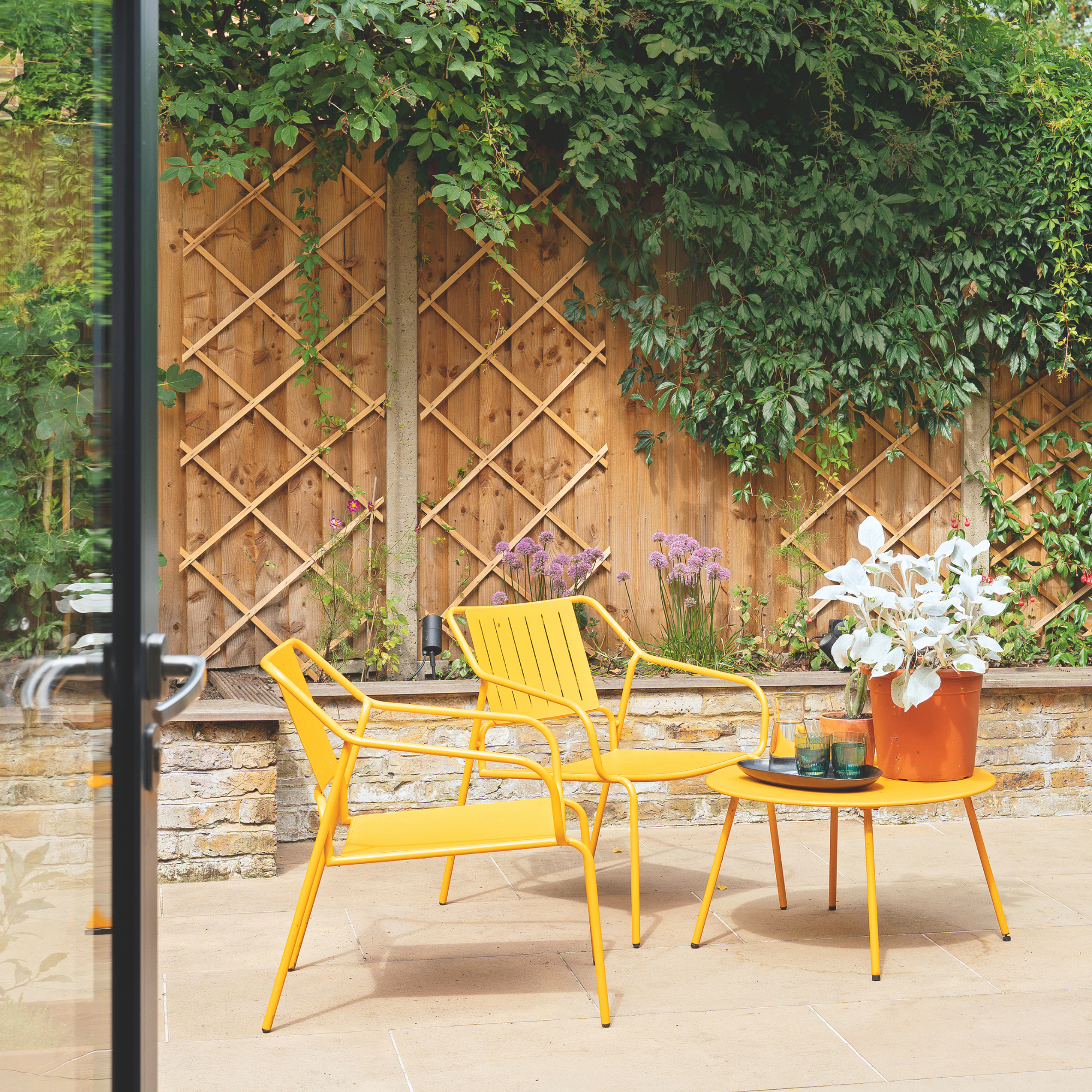 I’m seeing pastel garden furniture at all my favourite brands this spring, but QVC’s sorbet collection impressed me the most
I’m seeing pastel garden furniture at all my favourite brands this spring, but QVC’s sorbet collection impressed me the mostFresh pastel shades are a great way to liven up your outdoor space
By Kezia Reynolds
-
 I spent the afternoon looking through Wayfair's garden sale – these are the 6 pieces I'm buying immediately for summer
I spent the afternoon looking through Wayfair's garden sale – these are the 6 pieces I'm buying immediately for summerThese are my must-have garden buys from the sale
By Holly Reaney
-
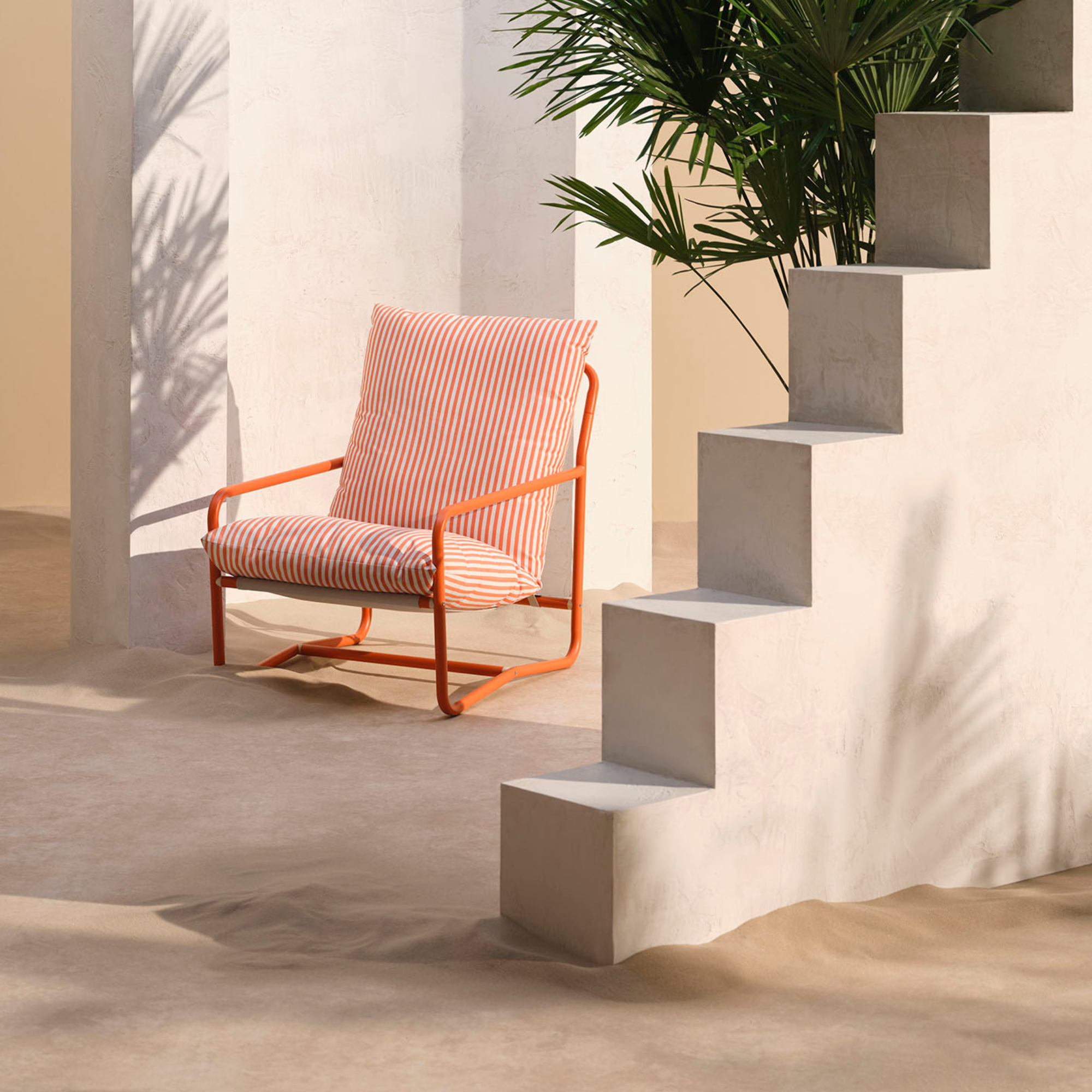 I’ve found the perfect alternative to John Lewis’ sold-out striped garden chair – and you won’t believe where it's from
I’ve found the perfect alternative to John Lewis’ sold-out striped garden chair – and you won’t believe where it's fromJohn Lewis' Sling Garden Chair is one of the most stylish pieces of garden furniture I'd seen – until I tracked down this QVC lounge chair...
By Kezia Reynolds
-
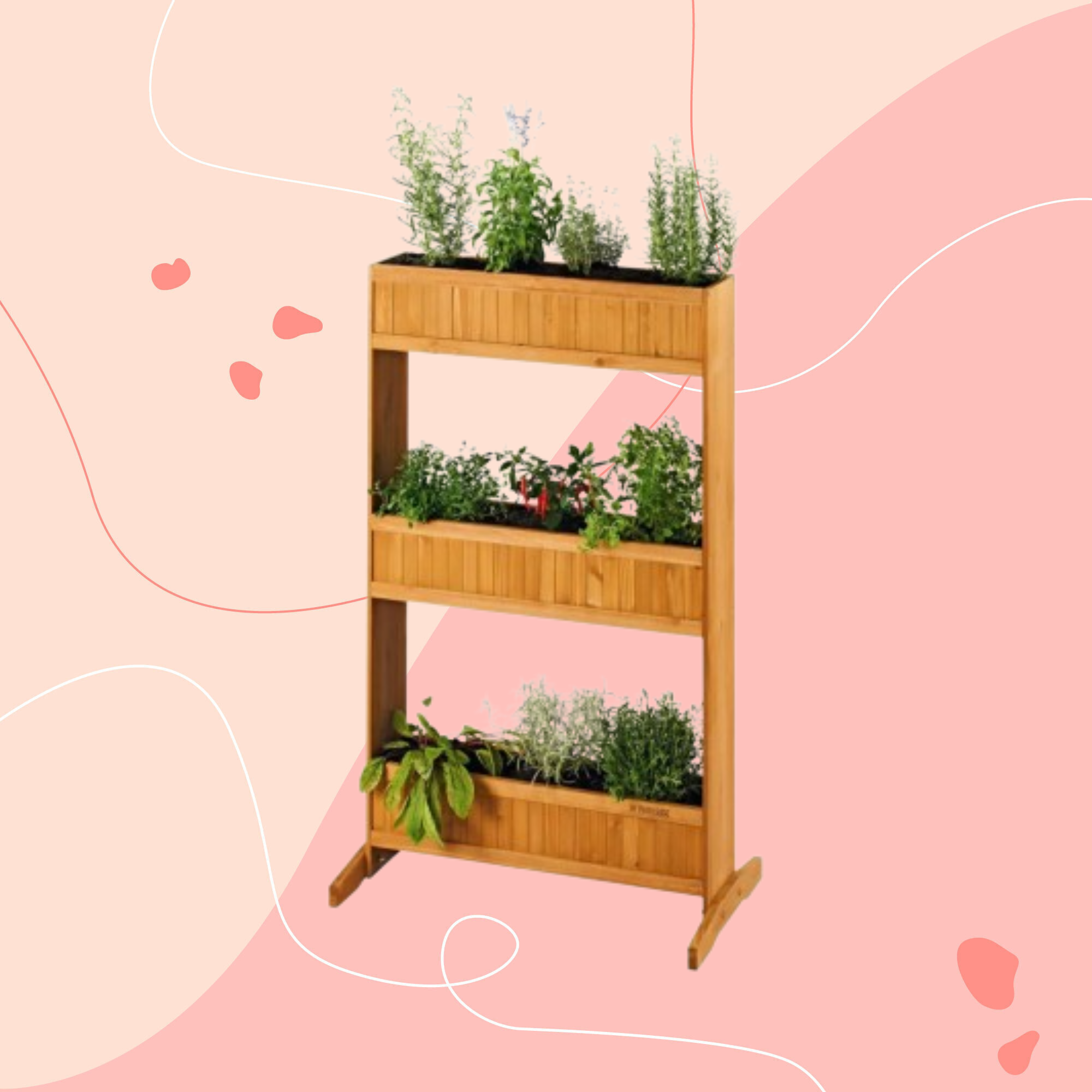 Lidl is selling a smart tiered planter that will unlock extra planting space in a tiny garden or balcony
Lidl is selling a smart tiered planter that will unlock extra planting space in a tiny garden or balconyWhy I've been eyeing this planter up for my tiny garden
By Kezia Reynolds
-
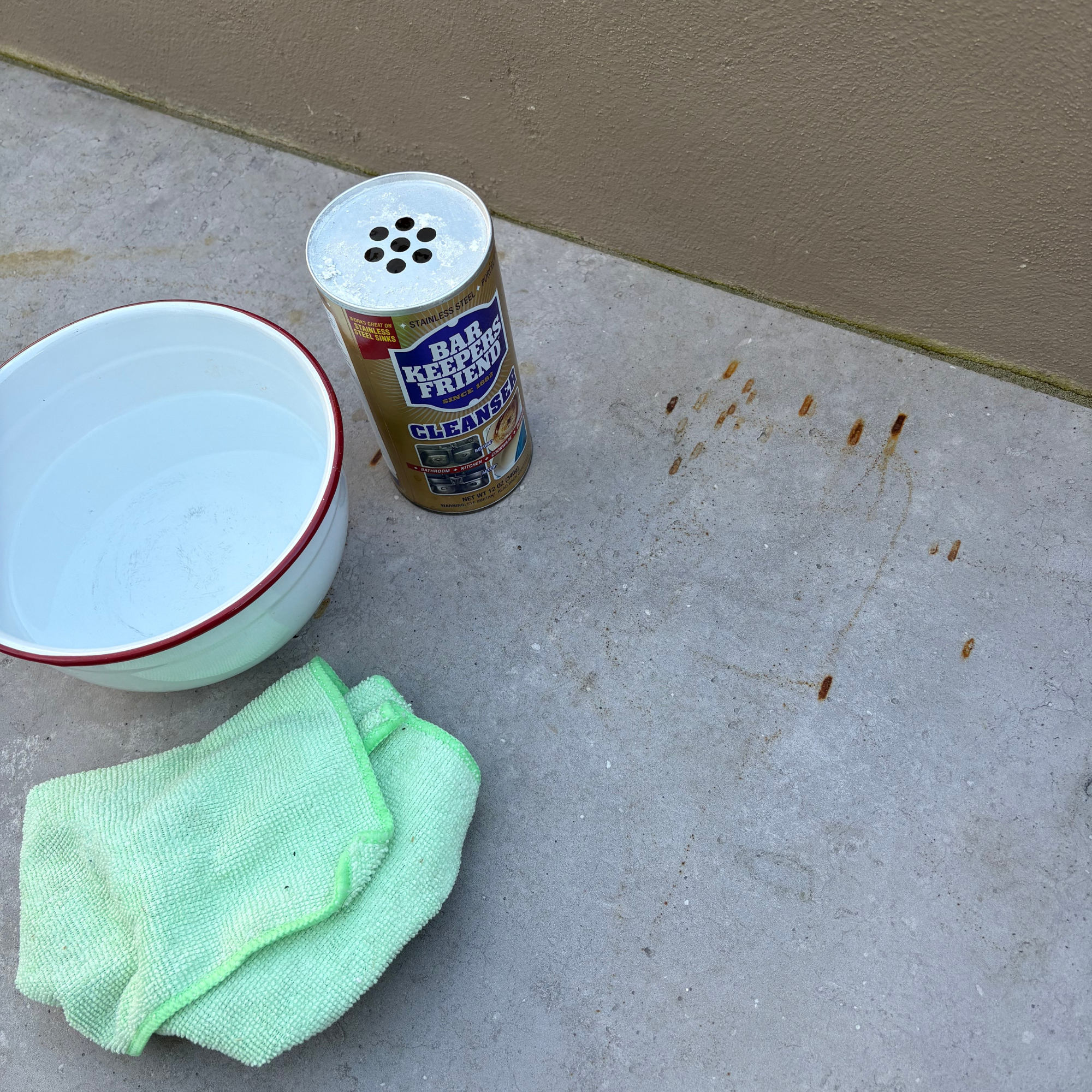 I’ve found the best solution for cleaning stains from a patio - and it’s only £8 on Amazon
I’ve found the best solution for cleaning stains from a patio - and it’s only £8 on AmazonThe stains practically vanish!
By Kezia Reynolds
-
 Lidl’s £15 sun sail is everything you need to create a shady oasis in your garden – and it’s on sale right now
Lidl’s £15 sun sail is everything you need to create a shady oasis in your garden – and it’s on sale right nowWith two stylish colours available, the sun sail will make a chic yet practical addition to any of your garden.
By Kezia Reynolds
-
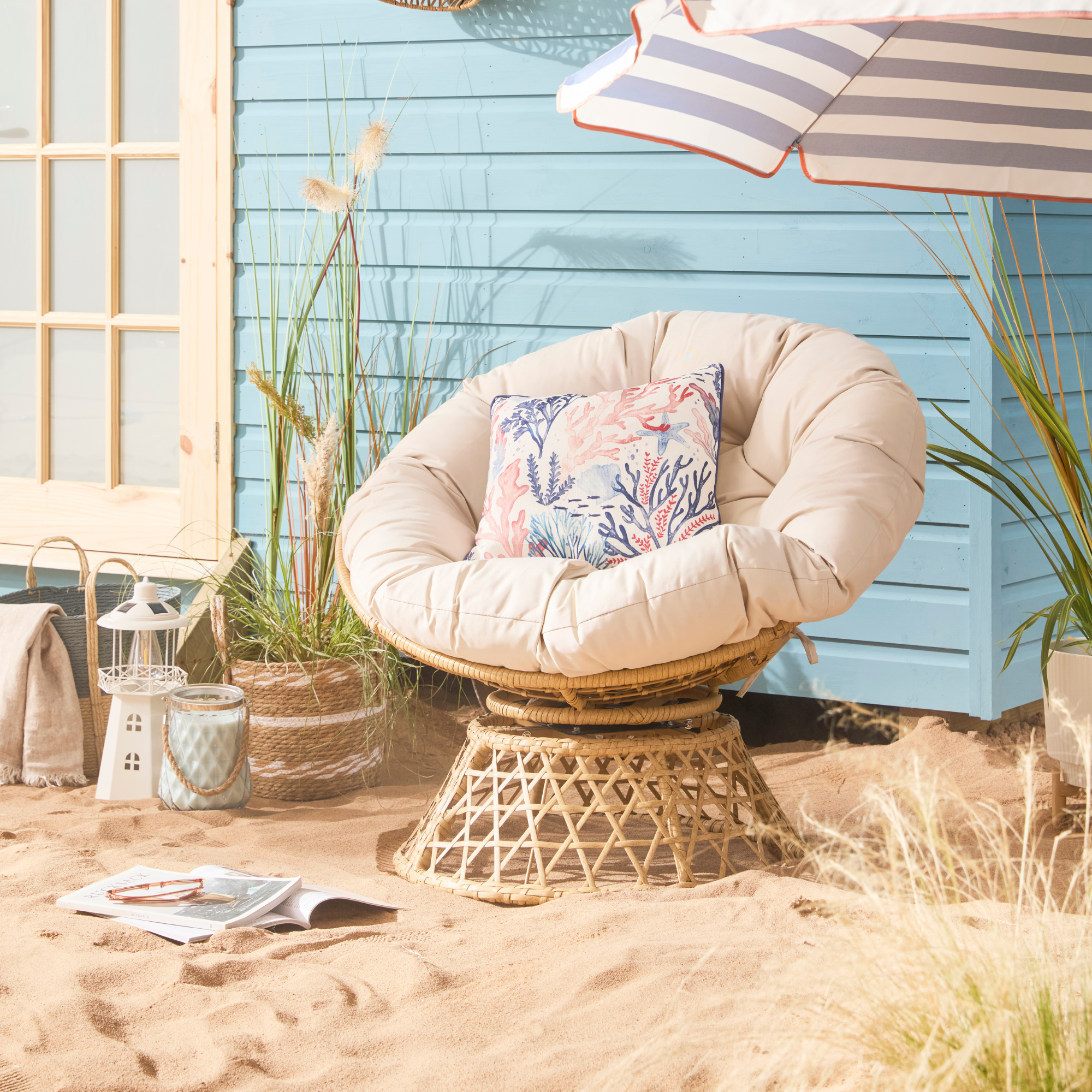 B&M has nailed 2025's breakout garden furniture trend - it's one of the most affordable and stylish I've seen
B&M has nailed 2025's breakout garden furniture trend - it's one of the most affordable and stylish I've seenGet the luxe look for less
By Kezia Reynolds
-
 I was shocked to discover a treasure-trove of designer-look garden furniture at La Redoute on sale right now – 6 chic standouts
I was shocked to discover a treasure-trove of designer-look garden furniture at La Redoute on sale right now – 6 chic standoutsGive your garden that high-end look
By Sara Hesikova

